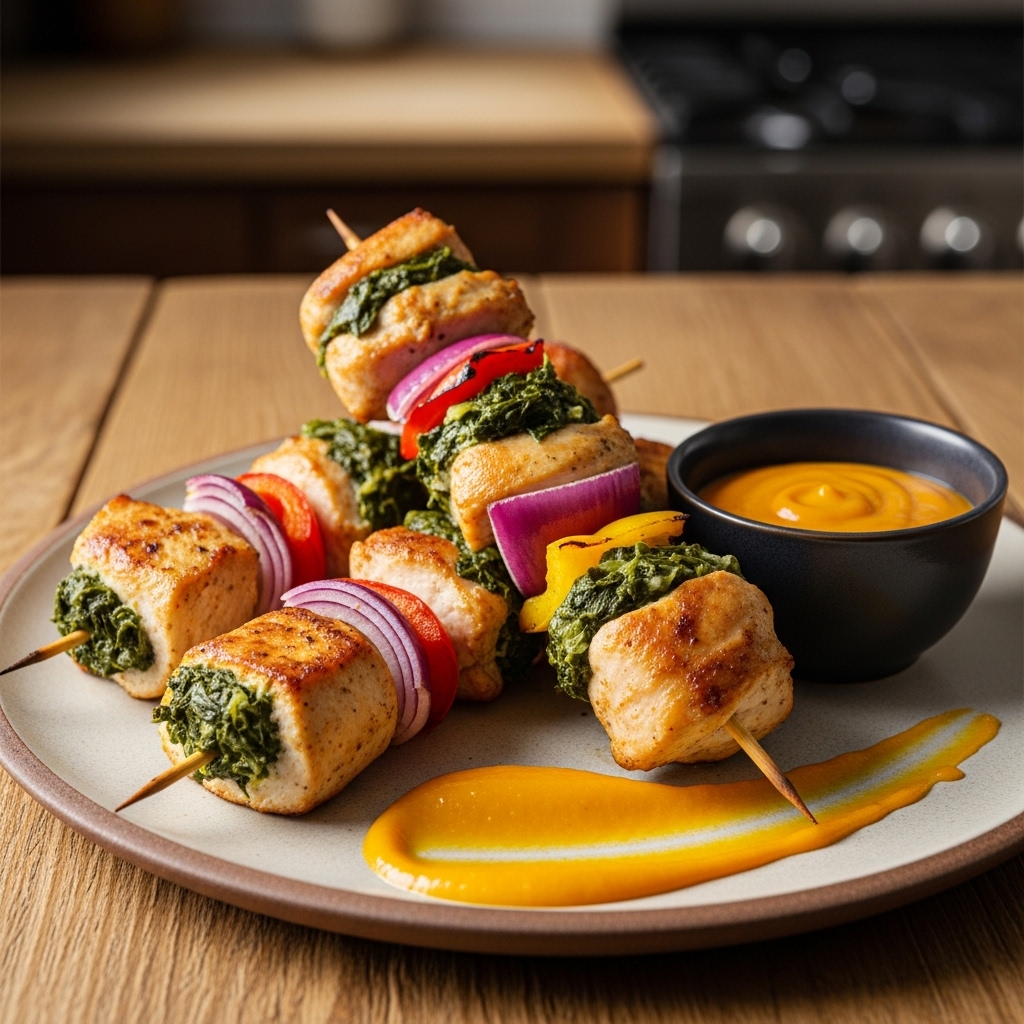
“Aromatic Kenyan Gluten-Free Sukuma Wiki Stuffed Chicken Breast Skewers with Mango Dip”
Discover this delicious and advanced level gluten-free Kenyan Sukuma Wiki Stuffed Chicken Breast Skewers recipe, served alongside a zesty mango dip for a sensory journey you won't forget! Perfect for those seeking to explore African cuisine with an exceptional taste experience.
Allergens
None, as long as you use gluten-free soy sauce and check other ingredients for allergens.
Ingredients
- 4 boneless chicken breasts, cut into cubes 2 cups Sukuma Wiki (kale or collard greens), finely chopped 1/2 cup red onion, finely chopped 2 cloves garlic, minced 1 tablespoon fresh ginger, grated 1 teaspoon ground cumin Salt and pepper, to taste 8 wooden or metal skewers Mango Dip: 1 ripe mango, peeled and pitted 1/2 cup plain yogurt 1 tablespoon fresh lime juice 1 teaspoon honey Salt, to taste
Instructions
- Begin by marinating the chicken cubes with salt, pepper, ginger, garlic, cumin, and Sukuma Wiki in a bowl for at least 30 minutes. Next, preheat your grill or oven to 400°F (205°C). Skewer the chicken and Sukuma Wiki cubes alternately onto wooden or metal skewers, ensuring even distribution of ingredients. Grill or bake the skewers for 18 20 minutes until cooked through. While the skewers cook, prepare the mango dip by blending all ingredients in a food processor until smooth and creamy. Serve the Sukuma Wiki Stuffed Chicken Breast Skewers hot with a side of the Mango Dip for an unforgettable dining experience.
Chef’s Insight
Sukuma Wiki is a staple in Kenyan cuisine and adds a unique flavor to this gluten-free dish.
Notes
Choose fresh, ripe mango for the best flavor in the Mango Dip.
